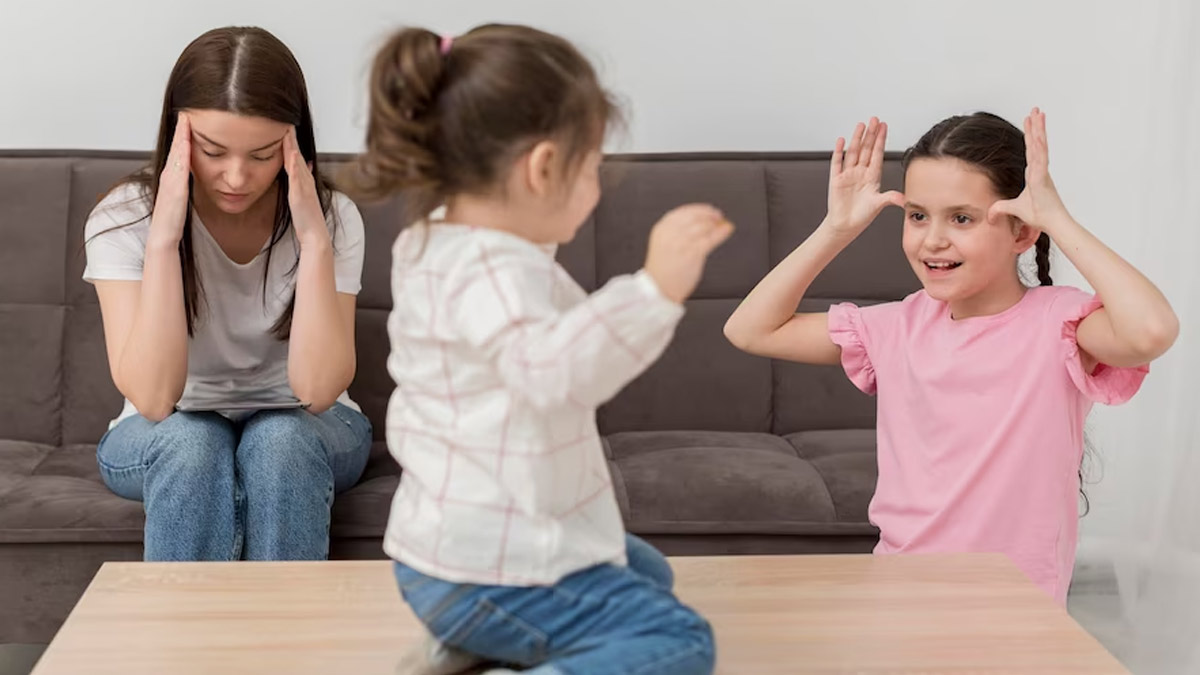
Children rarely show emotional struggles the way adults do. They communicate distress through behaviour, sometimes so quietly that signs go unnoticed. According to experts, early recognition of these signs is important for early intervention and healthy development of emotions. When parents and caregivers learn to recognise these subtle signs, they can take action before issues become more serious problems.
Table of Content:-
In an exclusive interaction with the editorial team of Onlymyhealth, Alishiba Arsud, Psychologist and Clinical Mental Health Professional, Mumbai, explained subtle signs that your child is struggling emotionally and how to address them early. Read ahead to find out.
Behaviour Changes in Children Are the First Red Flag
Changes in behaviour are among the earliest signs that point out when a child may be emotionally overwhelmed. A child who was once cheerful and social may suddenly withdraw from friends or lose interest in favourite activities. This kind of behavioural shift is usually a child's silent way of saying something doesn't feel right.
Irritability is another common symptom. Although occasional irritability is normal, frequent bursts of anger or frustration over minor issues, or unexpected crying spells, might be indicative of deeper internal turmoil. Children in emotional distress also tend to become increasingly sensitive to routine changes; something as simple as having dinner late or a class schedule adjustment may send them into a mental breakdown.
Also Read: Expert Shares How Weekend Habits Quietly Impact Sperm Quality

Physical Complaints That May Have Emotional Roots
Emotional distress often manifests as physical complaints. Frequent headaches, stomach aches, nausea, or unexplained pains, especially when no medical cause is found, can be the body's way of expressing stress. These complaints commonly appear before a child is emotionally aware or able to verbalise what’s wrong.
“If such complaints coincide with school hours, homework time, social events, or transitions, parents should pay close attention, since these patterns might reveal what the child is anxious about,” Alishiba explained.
Academic Decline in Children Can Signal Internal Turmoil
A sudden drop in school performance is a major warning signal. Children who are emotionally disturbed may find it hard to focus, finish assignments, or get motivated. They might also feel reluctant to attend school, or they may become forgetful. While setbacks in academics can be due to many reasons, when combined with other less noticeable symptoms, they strongly indicate emotional disturbances.
Clinginess or Withdrawal Shows Inner Conflict
Some children cling more to their parents, seeking reassurance all the time, while others retreat into themselves, becoming abnormally quiet and disengaged. Both extremes may be indicative of emotional overload.
In the words of Alishiba, patterns matter more than one-off incidents. A clingy day is normal, but when it's persistent or days of continuous withdrawal, it calls for a deeper look.
Also Read: Removing 825g Silicone Breast Implant Each, Sherlyn Chopra Feels “Light As a Butterfly”

Tips for Parents to Address Early Emotional Struggles in Children
Alishiba emphasised that early action can make a significant difference. Here’s what parents and caregivers can do:
- Check in gently: Rather than pushing for answers, initiate conversations with simple phrases such as “You seem a little quiet today, would you like to talk?”
- Create a safe space: Children open up when they feel accepted and not judged. A calm tone, coupled with patient listening and empathy, can go a long way.
- Establish routines: Predictability enhances security for children. Regular times for sleeping, homework, and family rituals offer stability and continuity.
- Observe patterns: Notice when and where behavioural changes occur. Multiple signs occurring over weeks, not days, warrant attention.
Bottomline
Kids quite often don't tell you when they're struggling; their behaviour almost always does, and learning to recognise the early signs can alter the course of their emotional well-being.
Also watch this video
FAQ
1. What are the earliest signs of emotional distress in children?
Some of the earliest signs include withdrawal, irritability, frequent physical complaints, and increased sensitivity to routine changes.2. When should parents seek professional help?
If behavioural changes persist for several weeks, interfere with daily life, or are accompanied by a decline in academic performance or persistent physical complaints, consult with a counsellor or mental health professional.3. How can parents get children to open up?
It also helps them feel safe enough to talk about their feelings: gentle conversations, active listening, a nonjudging attitude, and predictable routines.
Read Next
How to Distinguish Between Bad Behaviour and Emotional Distress in Children, Expert Explains
How we keep this article up to date:
We work with experts and keep a close eye on the latest in health and wellness. Whenever there is a new research or helpful information, we update our articles with accurate and useful advice.
Current Version
Nov 18, 2025 10:50 IST
Published By : Tanya Srivastava
